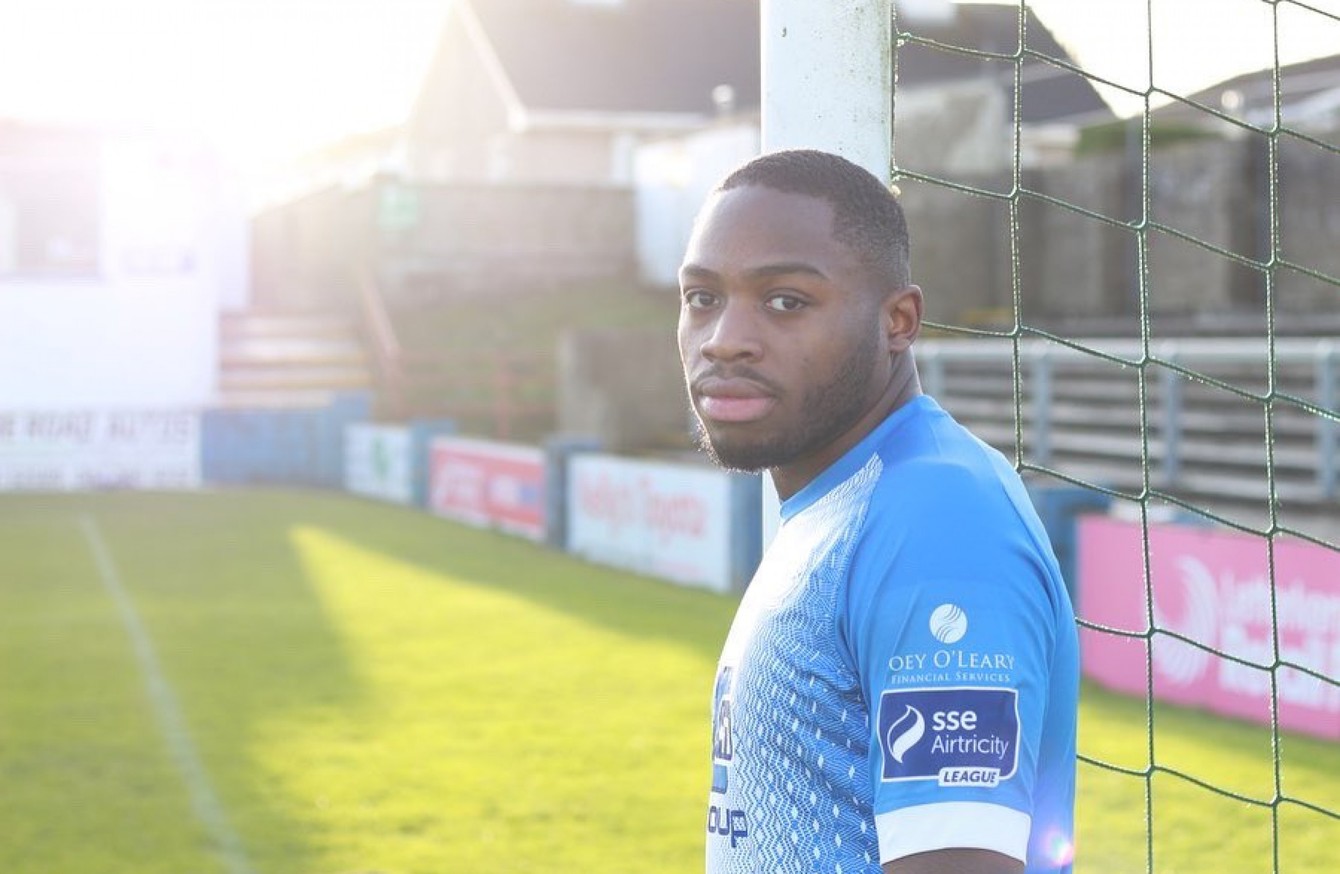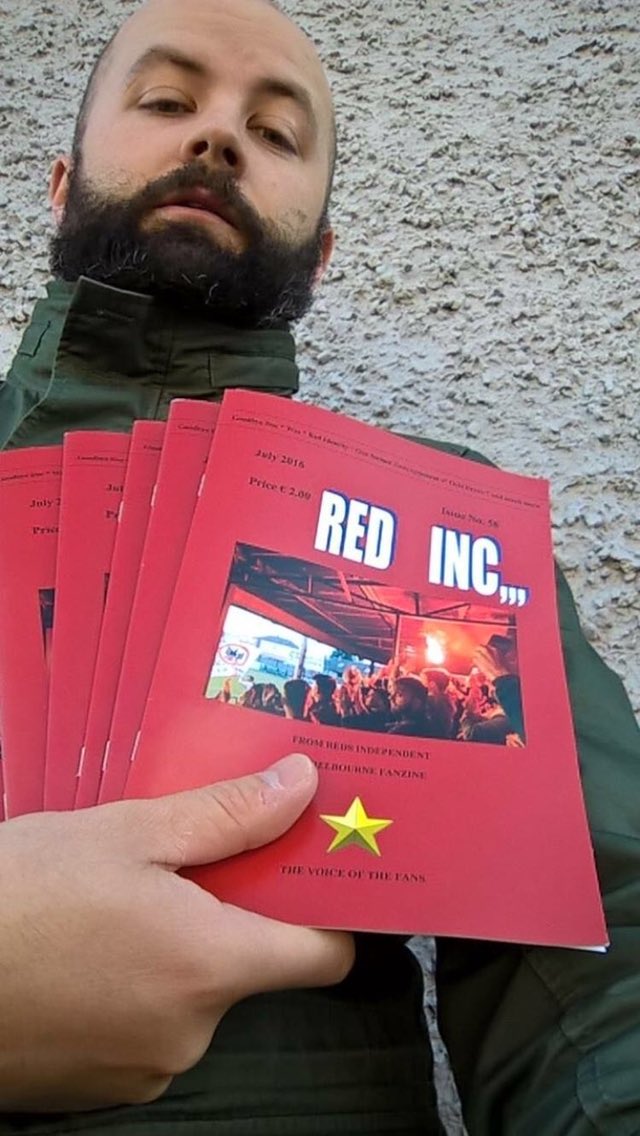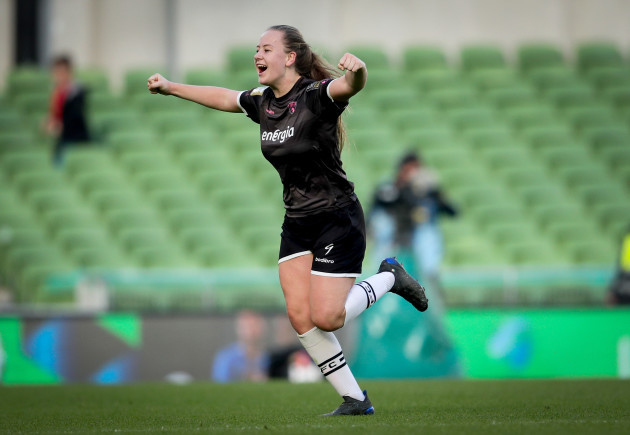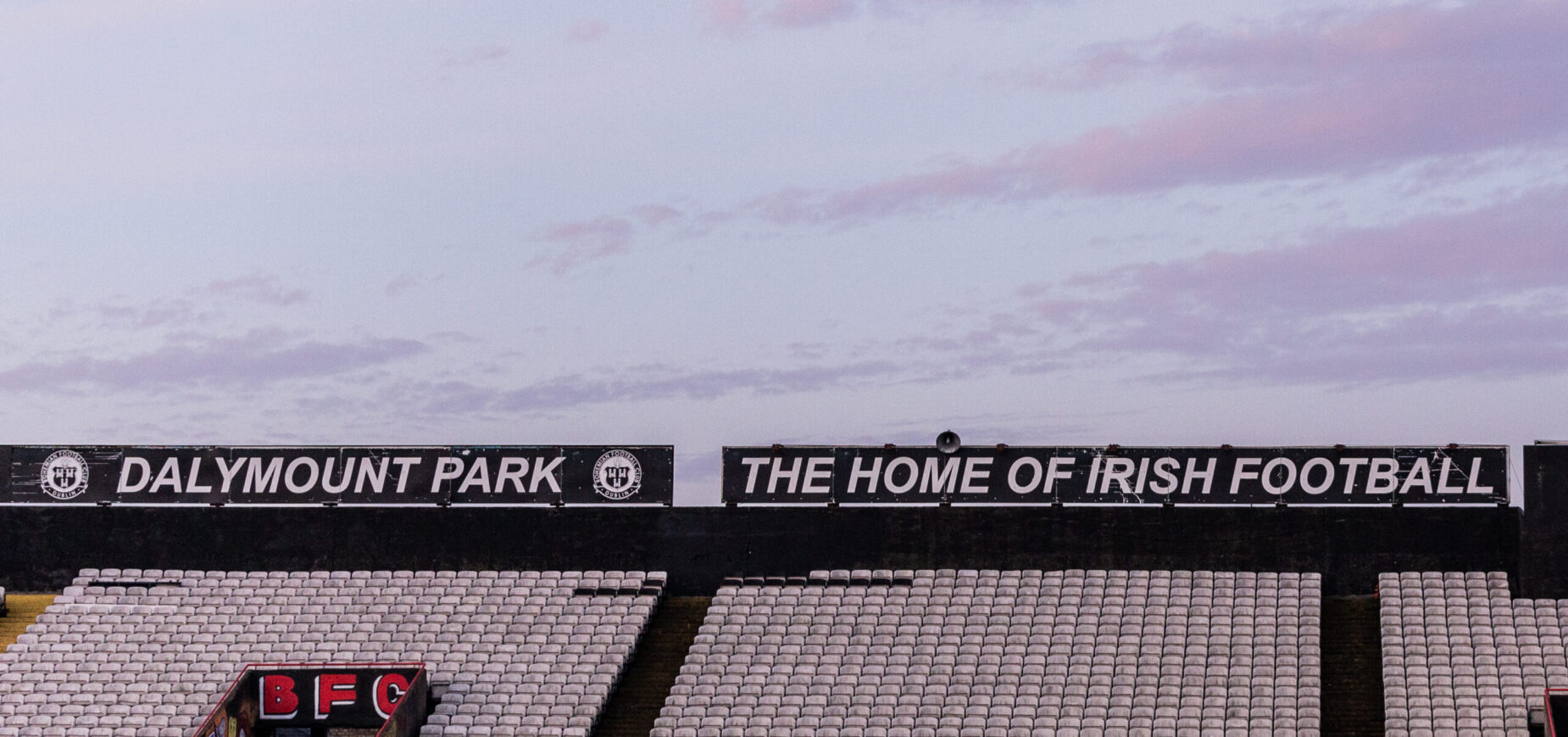Last month, on March 13th, Cameron Saul should have been travelling to Dublin with the rest of the Finn Harps first team, ahead of their League of Ireland clash against Shamrock Rovers. Instead, Saul was preparing to travel back to his native London. He was planning to only spend a week in the UK.
Weeks later, when I speak to him on the phone, he calls me from his family home in Tottenham. “Day to day, it’s been pretty tough”, he says, reflecting on a turbulent fortnight.
Saul arrived at Ballybofey just before the new League of Ireland campaign began last February. The striker had been living in the US since 2014 – most recently, he’d played for Greenville Triumph, a team based in South Carolina and playing in the third tier of the American footballing pyramid.
With the coronavirus spreading through Europe, Saul recounts the days leading up to their scheduled match against Shamrock Rovers: “The whole week prior it was just: focus on the game, focus on the game, try not to take too much notice of the virus. Not because we weren’t taking it seriously, but it was the unknown.”
Because all League of Ireland clubs rely on gate receipts, the writing was on the wall once that Bohs game was called off
The FAI eventually released a statement on the Thursday before the weekend’s round of fixtures, confirming that all footballing activity in Ireland would cease until March 29th, in line with government advice.
“They postponed it, and we just took a week off training as a team”, Saul tells me. “I came back home thinking I was gonna be home for a week, not knowing I would come home, and I’m still here three or four weeks later.”
The decision to move back to London was forced upon Saul. Despite not having lived in the UK since he left for the US six years ago, it seemed like the only viable option.
“As much as I haven’t been home in England in a very long time, being around family – not just for myself in case I got it, but in case someone else in my family was to contract the virus – it would be very difficult if I was in Ireland, or if I was in America.”
“Coming back to England and just being around family just made the most sense to me”, he says.
Saul is just one example of the thousands of people affected by the coronavirus’s impact on Irish football.

Cameron Saul, of Finn Harps, calls from his family home in Tottenham.
Daire O’Connor is 23 years old and a rising star on the domestic footballing scene. Since signing for Cork City in 2018, he has earned many plaudits for his efforts on the field – even winning praise from former men’s international team manager, Mick McCarthy.
O’Connor, much like Saul, moved back to his family home in Wicklow following the temporary postponement of football. Cork City were due to host Bohemians in Turner’s Cross the day after the announcement was made.
“We trained on the Thursday, [then] found out after that the game was called off. I packed my bags on Friday to go home.”
“We were told: ‘Lads, look, we’ll probably be back in training next week so don’t go mad, stay fit and we’ll be back in a few days’ … We didn’t realise the extent of the pandemic, so I only packed a bag for a few days. I’ve been kind of rationing my clothes and my gym gear since then.”
“I can’t go back down to Cork with the lockdown – I’m just blessed I brought my PlayStation with me, to be honest”, he adds.
The most pressing implication of the cessation of football announced by the FAI was the imminent drop in revenue for clubs from matchday ticket sales. O’Connor’s Cork City were one of the first professional clubs in the country to act on the news, announcing that they would stop paying wages to players and staff.
“Because all League of Ireland clubs rely on gate [receipts], the writing was on the wall once that Bohs game was called off. We kind of knew it was only going to be a matter of time before certain implications had to be brought in. It was expected”, O’Connor says of the wage cut.
“From a financial point of view, you’re going to be a bit annoyed about it, but it was obviously the right call. The club and the players obviously couldn’t just survive getting paid when there’s no income.”
Declan Carey is the chairperson at Cork City. He was at the centre of discussions when a decision had to be made on honouring staff contracts at the club.
“It was a highly emotive decision to make, of course”, he tells me.
It’s people’s livelihoods at the end of the day, but look, at the end of the day it’s not just a footballing matter
Ultimately, it was a business decision dictated by the club’s financial standing: “It was just looking at our cash flows really, and the next month and two months, and at what stage the club would be unable to trade any longer … we had to make a decision whether to temporarily lay-off all the staff or not.”
“It’s people’s livelihoods at the end of the day, but look, at the end of the day it’s not just a footballing matter. The players were fully understanding of the situation and that this is a global crisis and they understood our position. They made things a bit easier, to be honest.”
During a difficult time for football clubs in the country, Carey says the support of the FAI over the past number of weeks has been encouraging: “We were getting regular communications with Niall Quinn and Fran Gavin in the FAI.”
“There wasn’t a situation … in the last month where we felt the FAI were withholding information from us. [We] felt that they were being as transparent as they possibly could, given the regularly changing situation that they were dealing with as well.”
“I’ve had my own opinions about the FAI and how it’s been run, and the national team structure, and their relationship with League of Ireland clubs over the last decade and more, since I’ve been a League of Ireland fan myself. That’s all behind us now, I think. It’s about looking forward now … this is a perfect example now of everyone rowing in the same direction”, Carey says.

Barry Crossan runs Ireland’s only dedicated football fanzine.
Despite the encouraging changes happening within the association following years of mismanagement, the FAI remains financially crippled. Indeed, this was the case long before the outbreak of the coronavirus. With the best will, communication and support in the world, the FAI simply does not have the resources to bail out clubs.
The reality of the situation is laid bare by Larry Bass, the chairman at Cabinteely FC – another club forced into temporary redundancies: “The FAI have well-established financial issues. It’s not as if they can turn around and write a cheque for every club in the country to keep the doors open. That was never going to be the case.”
“Apart from trying to support decisions to be done in a timely manner, there’s not a lot else I think they can do.”
In many cases, the onus has fallen on communities and supporter bases to ensure that clubs can stay afloat. As O’Connor tells me, “we rely on the fans, and if they don’t exist, we don’t exist. It’s a two-way street”. Some might dismiss this as a tired football cliche, but in the Irish domestic game, it rings true.
Barry Crossan has been a supporter of Shelbourne FC for decades, and runs Ireland’s only dedicated football fanzine, Red Inc. Although the current pandemic is unprecedented in many ways, Crossan knows that League of Ireland clubs are no strangers to hardship.
“A lot of the clubs are permanently in crisis mode. They’re living from hand to mouth as it is, you know. Most clubs are set up in such a way that they just get by, that they don’t have large reserves of cash to get them through”, he says.
“A lot of the time, due to mismanagement or whatever, League of Ireland clubs have faced extinction on many occasions. As a result of this, League of Ireland fans are used to fundraising and the fundraising network, and mobilising support in order to finance clubs through difficult times.”
“There is a strong base within a lot of League of Ireland clubs, and I think Shelbourne is no different”, he adds.
Just over a decade ago, Shelbourne faced expulsion from the league due to severe financial difficulties. The Drumcondra-based club are now on the up, having returned to the top flight of Irish football this year after a prolonged absence. They are one of the few clubs to still be honouring the contracts of their paid staff.
The FAI have well-established financial issues. It’s not as if they can turn around and write a cheque for every club in the country
Gavin White, long-time supporter and current press officer at Shelbourne, acknowledges that the club’s ability to still pay its staff stems from a loyal support base. White runs the club’s new Patreon service, which allows fans to access archival material and a podcast series. Peter Schmeichel was a guest on the podcast last week – “big fan of the Reds, apparently”, quips White.
“It’s [the reception] been brilliant. You have to remember a lot of people lost their jobs and have lost income, so another thing when we launched it, I didn’t want to push it down people’s throats. Obviously the club is in need of funds and resources, but you have to respect that people’s situations can be wildly different.”
“In terms of the engagement [with the Patreon], it’s been really, really good, and it’s what’s helped the club maintain its ambitions to fulfil contracts with players and staff. It just goes to show that people have a deep affection for the club and want to support it at all costs.”
Even with the help of innovations such as a Patreon service, honouring contracts in a time of crisis is a huge undertaking for any Irish club. It’s a commendable approach to take, in Crossan’s book: “If a business can – which football clubs are really, essentially – but if they can meet and can pay their employees as much as possible I think that’s a good thing, that’s a positive thing.”
“As a basic, decent thing to do, for your fellow man, for your fellow person, I think it’s good.”
While Shelbourne will continue to honour contracts for now, White notes that the situation is subject to change – “we could be told tomorrow that the league isn’t coming back until next spring and that throws everything up in the air”.

Lauren Kelly, who plays up front for Wexford Youths, hasn’t kicked a ball in a competitive match since last November.
While the FAI has provisionally set the target of June 19th as a return date for football, the overwhelming feeling among the footballing community is that this is ambitious, to say the least.
While he gives credit to FAI for putting a plan in place, Sligo Rovers chairman Tommy Higgins is sceptical of a June return: “I’ll be very very surprised if it’ll be a June opening, I just really can’t see it at present.”
“The government, they have put a plan in place for three months. Three months goes into June. Then you’re going to have to get players back. Some of them, and not just our club, but other clubs around would have players overseas, they’ll be quarantined. Then there’ll be preseason – you can’t throw players back in playing straight away because they’ve been out of action for three months or more.”
“From ourselves, to Real Madrid, to Manchester United, we don’t know what is coming down the line. We really don’t know”, he adds.
Lauren Kelly hasn’t kicked a ball in a competitive match since her brace in the FAI Cup final last November. The Wexford Youths striker played alongside current Brighton and Hove Albion star Rianna Jarrett that day, when her side defeated Peamount United 3-2 in the Aviva.
For Kelly, training in isolation, with little idea of when she’ll be back on the pitch, is frustrating: “I think because you don’t know how long this is going to go on for, I think that’s the hardest part. You want to keep yourself fit and at that level, but you don’t know how long you’re going to have to train on your own for, and do the same runs for.”
A lot of the clubs are permanently in crisis mode. They’re living from hand to mouth as it is
“There’s such uncertainty as to how long this is going to go on for and how long we’re going to be in this kind of position … we’ve been waiting since November for the league to come back, so it’s hard not to be motivated, because I think we’re dying to get back to training together, and able to get back playing – some sort of normality.”
Like Kelly, most players at major clubs are following a strict training regime set out by coaches while at home. When I speak to O’Connor, he’s just finished a training session facilitated by Zoom, the video-calling service that has seen a spike in usage since the coronavirus outbreak.
Saul admits that training during quarantine is difficult for a number of reasons. The social interaction that goes hand in hand with football is often taken for granted. Without that, finding the same enjoyment is a challenge: “It is sometimes tough when it’s a bit of running, when really all you want to do is play football and play with your friends.”
“For me, that’s what it’s all about, the enjoyment of playing with others. So it’s tough when you have to do these things and you are just alone.”
For Barry Crossan, the social element implicit in supporting a football team has been missed by players and fans alike. “From a supporter’s viewpoint”, he says, “it’s obviously frustrating as well not being able to go to games, not having that communal interaction that we’re used to”.
From ourselves, to Real Madrid, to Manchester United, we don’t know what is coming down the line. We really don’t know
“The week it was postponed we had an away trip to Sligo and Harps on the cards, which would have been great days out and which are the real bread and butter, the real meat of going to League of Ireland.”
In the face of a generation-defining pandemic, however, football takes a back-seat for the time being. “The most important thing here is people’s wellbeing and safety”, Gavin White says.
“At the end of the day, we’re trying to keep a football club going and that pales in significance to the grander scheme of things. I think people’s primary concern is the health and safety of staff, players, fans, everyone connected to the club.”
It’s a view that’s broadly shared by everyone I speak to. When the time does come to return to the terraces again, Carey is certain that the appetite for live football will be even greater than before.
“Questions are always what brings people out to football matches, really. What’s going to happen, who’ll be playing, will players perform, what kind of crowd will Bohemians bring down to Cork, you know. All these questions will be exciting for people when that game comes around, and that’s why we go I think, that’s why people enjoy it.”







